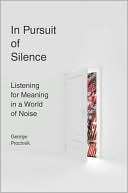Category Books
- Fiction Books & Literature
- Graphic Novels
- Horror
- Mystery & Crime
- Poetry
- Romance Books
- Science Fiction & Fantasy
- Thrillers
- Westerns
- Ages 0-2
- Ages 3-5
- Ages 6-8
- Ages 9-12
- Teens
- Children's Books
- African Americans
- Antiques & Collectibles
- Art, Architecture & Photography
- Bibles & Bible Studies
- Biography
- Business Books
- Christianity
- Computer Books & Technology Books
- Cookbooks, Food & Wine
- Crafts & Hobbies Books
- Education & Teaching
- Engineering
- Entertainment
- Foreign Languages
- Game Books
- Gay & Lesbian
- Health Books, Diet & Fitness Books
- History
- Home & Garden
- Humor Books
- Judaism & Judaica
- Law
- Medical Books
- New Age & Spirituality
- Nonfiction
- Parenting & Family
- Pets
- Philosophy
- Political Books & Current Events Books
- Psychology & Psychotherapy
- Reference
- Religion Books
- Science & Nature
- Self Improvement
- Sex & Relationships
- Social Sciences
- Sports & Adventure
- Study Guides & Test Prep
- Travel
- True Crime
- Weddings
- Women's Studies
In Pursuit of Silence: Listening for Meaning in a World of Noise »

Authors: George Prochnik
ISBN-13: 9780385528887, ISBN-10: 0385528884
Format: Hardcover
Publisher: Knopf Doubleday Publishing Group
Date Published: April 2010
Edition: (Non-applicable)
Author Biography: George Prochnik
GEORGE PROCHNIK is the author of Putnam Camp: Sigmund Freud, James Jackson Putnam, and the Purpose of American Psychology, a New York Times “Editor’s Choice” pick and winner of a 2007 Gradiva Award. He has written for the New York Times, the Boston Globe, Playboy, and Cabinet magazine, among other publications. He lives in Brooklyn.
www.inpursuitofsilence.com
Book Synopsis
Between iPods, music-blasting restaurants, ear-splitting sports stadiums, and endless air and road traffic, the place for quiet in our lives grows smaller by the day. In Pursuit of Silence gives context to our increasingly desperate sense that noise pollution is, in a very real way, an environmental catastrophe. Listening to doctors, neuroscientists, acoustical engineers, monks, activists, educators, marketers, and aggrieved citizens, George Prochnik examines why we began to be so loud as a society, and what it is that gets lost when we can no longer find quiet. He shows us the benefits of decluttering our sonic world.
Publishers Weekly
Silence is golden, but noise is more stimulating in this smart if occasionally overearnest rumination on our modern soundscape. Prochnik (Putnam Camp) is at his best investigating the culture of noise—the traffic, TV, and iPods—that ravages our hearing and peace of mind. He tunes in with a sprightly mix of science—babies, it seems, have evolved to squall at pitches the human ear finds maximally annoying—and reportage, visiting a designer who concocts soundtracks that make Abercrombie & Fitch patrons spend (“loud, strong, fast beats pump energy—and social conformity” into soldiers and teen shoppers alike) and the subculture of competitive loud car-stereo tournaments. (“I didn't hear sound,” the author observes of one window-shattering system. “I just experienced my bones and heart bursting apart through my skin.”) Prochnik's explorations of silence—visiting a Trappist monastery, searching for oases of quiet in Manhattan—are more muted, veering between health advice (meditation improves the brain) and muzzy spirituality. (“The more we hear nothing, the more nothing we hear,” intones a sniper.) Silence is good for falling asleep, but Prochnik's attentive take on noise keeps us wide awake. (Apr.)
Table of Contents
Subjects
 Industrial Engineering & Materials Science
Industrial Engineering & Materials Science  Industrial Health & Safety
Industrial Health & SafetyMedical Books
 Medicine
Medicine  Clinical Medicine
Clinical MedicineNonfiction
 Social Sciences
Social Sciences  General & Miscellaneous
General & MiscellaneousScience & Nature
 Ecology & Environment
Ecology & Environment  General & Miscellaneous Pollution & Pollutants
General & Miscellaneous Pollution & PollutantsScience & Nature
 Social Sciences
Social Sciences  General & Miscellaneous
General & MiscellaneousScience & Nature
 All Science & Nature
All Science & Nature  Ecology & Environmental Sciences
Ecology & Environmental SciencesSocial Sciences
 General & Miscellaneous
General & Miscellaneous  Popular Culture Studies
Popular Culture StudiesNonfiction
 Medicine
Medicine  Medicine
MedicineNonfiction
 Science & Nature
Science & Nature  Ecology & Environment
Ecology & EnvironmentNonfiction
 Science & Nature
Science & Nature  All Science & Nature
All Science & Nature
